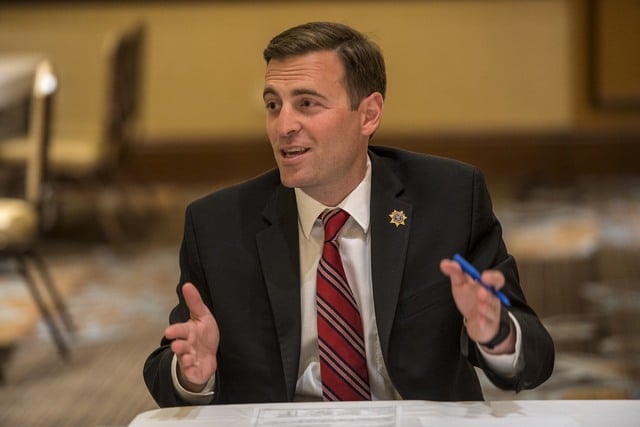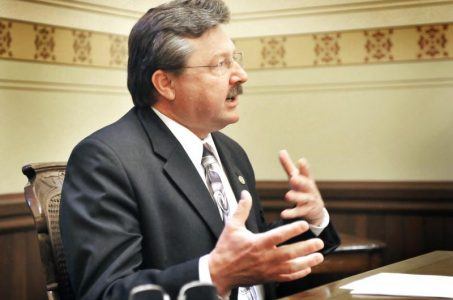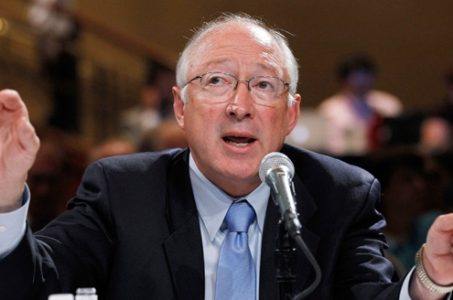Gaming Regulator’s Secret Recording Exposes Unsavory Effort to Assist Adelson
Posted on: May 17, 2017, 12:56h.
Last updated on: May 18, 2017, 09:45h.
One of Nevada’s top gaming regulators contacted the FBI after the state’s attorney general, Adam Laxalt, attempted to call in a favor on behalf of casino magnate Sheldon Adelson.

The Nevada Independent released a transcript on Tuesday of a March 2016 conversation between Gaming Control Board Chair AG Burnett and Laxalt, who at the time was considering a future run for governor while also facing allegations of ethical compromise.
Burnett recorded the in-person meeting between the two at a Reno coffeehouse because he thought the request was odd and unsettling. On the guidance of other state officials, Burnett turned the recording over to the FBI shortly thereafter, but the federal law enforcement agency found no indications of criminal wrongdoing.
Asking for Adelson
The hastily requested coffeehouse chat was to discuss a high-profile civil trial involving Adelson and his company, Las Vegas Sands. A judge was due to rule in days on a key motion in a wrongful termination lawsuit by Steven Jacobs, former chief executive of Sands China.
Burnett resisted the suggestion that he should file an amicus brief with the court, referring to a “friend of the court” legal filing that would inform the court that paperwork filed by the Sands in an internal audit was confidential to the Board. The GCB chair declined, saying he did not believe the audit filings were confidential after they had been circulated to other agencies within the state.
Laxalt agreed that it was a “tough request,” but suggested that if the judge ruled internal audits were not confidential, it would “create a chilling effect for you guys, and you guys will have to figure that out.”
Adelson is well-known as one of Laxalt’s biggest political donors. The billionaire also donated heavily to President Donald Trump and other key Republicans.
Unfavorable Outcome?
The day after the recorded conversation took place, Adelson flew to Reno to meet personally with Burnett to make an unsuccessful pitch for the amicus brief. That same day the state Supreme Court would rule against Adelson, who was seeking remove the judge in this case.
After losing the motion in the Supreme Court, and failing to persuade Burnett to submit a letter of support for keeping certain documents secret, Adelson and Las Vegas Sands settled the case with Jacobs for a rumored $75 million.
State lawmakers were due to hold a hearing on the transcript’s contents and its ramifications on Wednesday. Also moving forward in Carson City this week is a bill, prompted by Laxalt’s behavior in this case, that would allow GCB to retain their own legal counsel, independent of the state attorney general’s office.
Secret Recording, Friendly Request
Nevada Attorney General Adam Laxalt made the following statements requesting non-binding legal assistance on behalf of Sheldon Adelson and Las Vegas Sands, in a conversation recorded by GCB Chair AG Burnett:
“I think it’d be a 4-page amicus, and it’ll be as narrow as you would be comfortable with, simply laying out ‘here’s the law as we see it.’ It doesn’t even need to mention the facts of the case. It could be literally that narrow.”
…
“It’s a tough request, and that’s why I’m having the one-on-one conversation with you. They’re asking me, [and] they’ve asked you, I’m following up with you and seeing where we are on this thing.”
…
“I think it is a challenging request because it will look like the Sands is getting a special thing… and so I wouldn’t do anything that jeopardizes me either, and that’s why the only way I think it’s even possible is if we do think that the narrow privilege is in some way in jeopardy and we kept it that way.”
Laxalt warned that if the judge ruled that internal audits were not confidential it would “create a chilling effect for you guys, and you guys will have to figure that out … There will be less cooperation and people will think there’s an issue.”
Related News Articles
National Governors Association Warns AG Jeff Sessions Over RAWA
Most Popular
LOST VEGAS: The Foster Brooks Robot at MGM Grand
Bally’s Sets Date for Tropicana Las Vegas Implosion & Party
Most Commented
-
VEGAS MYTHS RE-BUSTED: You Don’t Have to Pay Resort Fees
— August 2, 2024 — 16 Comments -
VEGAS MYTHS RE-BUSTED: Elvis Was a Straight-Up Racist
— August 9, 2024 — 11 Comments -
ANTI-SOCIAL BEHAVIOR: Vegas Casino Buffet Stunt in Poor Taste Goes Viral
— August 16, 2024 — 7 Comments -
VEGAS MYTHS RE-BUSTED: The Strip Tried Appealing to Families and Failed
— August 23, 2024 — 7 Comments
















No comments yet